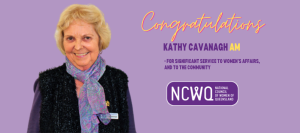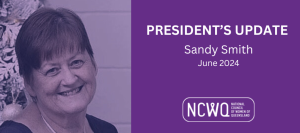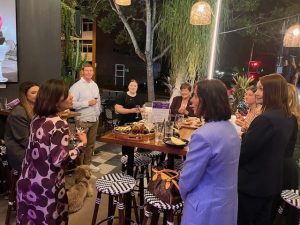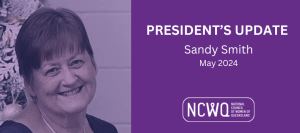By Georgina Pickers
NCWQ International Relations and Peace and Human Rights Adviser
An associate of NCWQ drew my attention to the on-going legal ‘firestorm’ which started in 2013. It was created by students attending the Queensland University of Technology (QUT) commenting on social media about their denied access to an exclusive learning area for indigenous students.
Much has already been written in the media about an injured party who regarded their comments as racially motivated; appealing to the Human Rights Commissioner who judged it was in breach of clause 18C of Australia’s racial discrimination laws and commenced legal proceedings against the students.
More recently a Bill Leak cartoon published in the Australian that depicted an aboriginal father and son has been regarded by some, including the HRC as having ‘racist’ overtones. This has been strenuously defended as the majority regard cartoons and satire as a form of basic ‘freedom of speech’
While we all have a personal responsibility not to participate or condone open racism, bigotry or just plain nastiness some common sense must prevail. Some opinion feels the Act in its present form is too broadly interpreted and should be reviewed. More recently some members of the coalition Federal government urged that words “offend” and “insult” be removed from the Act.
The Queensland parliament recently enacted the Domestic and Family Violence Protection and Other Legislation Amendment Bill 2016. This bill incorporates changes to the Domestic and Family Violence Protection Act 2012. The Amendments, particularly relating to police powers, applications for protection orders (PO) and Domestic Violence Orders (DVO) The tailoring, duration mutual recognition across state borders and compliance of DVO’s has been addressed. While Domestic Violence organisations and the NCWQ welcomed the changes there is a pressing need for more dedicated crises accommodation and legal assistance for women and children affected by D.V. especially those living in remote communities and townships.
Child protection in Queensland was found to be wanting after horrific reports of several cases of child abuse, torture and death. The Minister, Departments and officers must do better. Review of procedures, reporting and extra funding for front-line staff must be a priority.
Annual UN World Human Rights Day was observed on August 19. Foreign Minister Julie Bishop gave a keynote address at the State Library Melbourne as to Australia’s past and current Human Rights responses.
African Nations including Gambia, Tanzania have banned child marriage; the minimum age has been lifted from 15 to 18 years by law. According to UNICEF top counties that allow child marriage are Niger, Chad, Central African Republic, Bangladesh, Mali, Guinea, South Sudan, Burkina Faso, Mozambique, and Malawi. Human Rights groups, Amnesty International and Plan International all assert his practice is direct contravention of Human Rights. So, it was indeed heartening to read that Malawi Chief Teresa Kach Indamoto took a stand, breaking up 850 child marriages in 3 years. She is a Senior Chief to more than 900,000 people, ordering people to give up ‘old’ ways, by terminating early marriages.
The social, health, education and economic welfare of girls must be universally raised. An address by Minister Fierra Vanti-Wells marking the International Day of the Girl Child on October 11 highlighted the appalling lack of rights and status girls suffer, but what they and their communities can achieve given respect, education, health and protection.
Australia should not be complacent because girls as young as 12 and 13 were taken out of Australia for arranged marriages to someone much older, someone they did not know or even someone related to them. The Australian Federal Police reports that there were 69 incidents of forced marriage investigated in the financial year 2015-16, up from 33 the year before (the cases reported and investigate) One might only guess how many there may have occurred prior to 2013 when forced marriage was criminalised.
This practice surely contravenes the Rights of the Child and fundamental Human Rights and it has no place in modern Australia.
UN Women advise that 64% of illiterates globally are women. The UNAA have published a 2016, 34 page Economic Empowerment for Women and Girls. Over 80 participants and speakers contributed. To read more visit: www.unaa.org.au
The Federal governments Minister for Immigration’s recent declaration that illegal boat arrivals with face a life time ban on taking up residency will face strong opposition from Human Rights advocates not to mention robust debate and stormy passage through parliament. Whatever your views the major ‘selling point’ of people smugglers is that “we’ll get you there (at your cost) and they have to take you (eventually)”
Ending on more positive note, Australia joined 175 other countries in signing the UN Paris Climate agreement on April 22nd, 2016. The country joined 195 other countries who’ve signed up.
To date 98 countries including the United States of American and China have ratified the agreement. Australia’s commitment is not yet ‘set in stone’ as the agreement has yet to be ratified in the Australian parliament. Australia’s emission target reduction in relation to other less developed countries remains a contentious issue.





